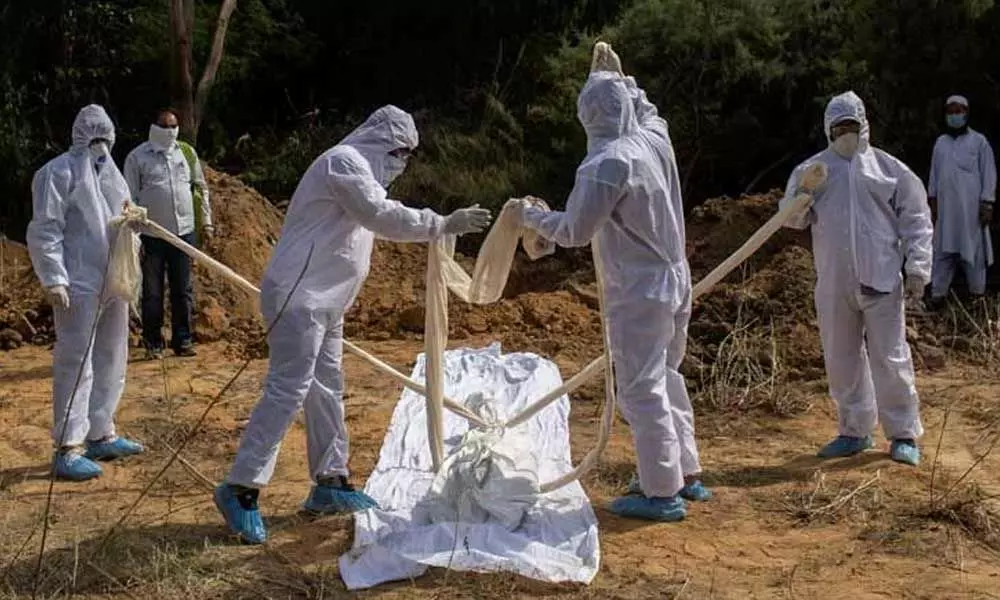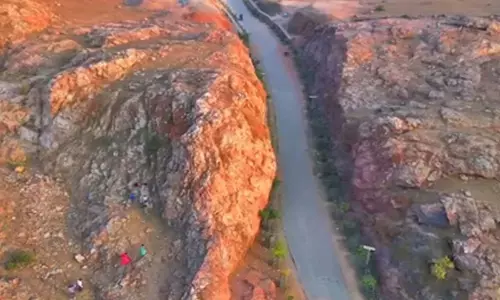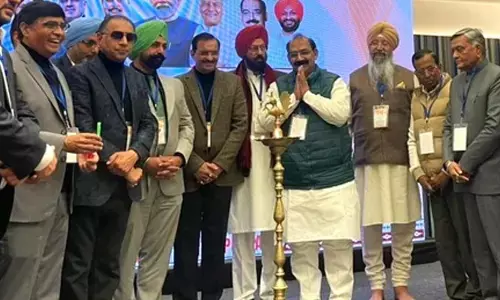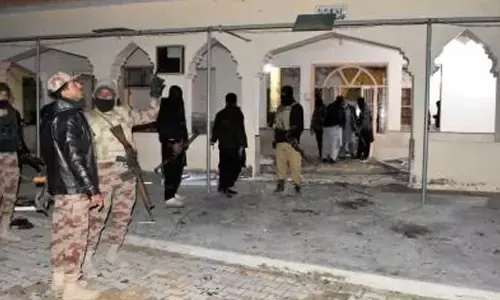Death and inhumanity going hand-in-hand

Death and inhumanity going hand-in-hand
Covid-19 is like being in a war with an invisible enemy. It’s like we had a new telluric shock every day
Covid-19 is like being in a war with an invisible enemy. It's like we had a new telluric shock every day. Coronavirus a "cruel" disease that paralyses the human need to socialize. Patients are like candles that start flickering, before becoming feeble and eventually going out. Wheezing and shortness of breath precedes death. What makes it even harder is that there is no end in sight.
With enormous sadness around them, doctors accompany them gently into their deaths. Everywhere the coronavirus has struck, regardless of culture or religion, ancient rituals to honor the dead and comfort the bereaved have been cut short or abandoned for fear of spreading it further. The virus, which has killed nearly more than 5 laksh people worldwide, is reshaping many aspects of death, from the practicalities of handling infected bodies to meeting the spiritual and emotional needs of those left behind. Churches has become a makeshift mortuary.
The disturbing images were seen using an earthmover to transport the body of a senior citizen from the hospital to the crematorium in Srikakulam in Andhra Pradesh and in karnataka eight plastic wrapped dead bodies are tossed into the pit, what appears to be a mass grave, have shocked entire India. Sadly, this is hardly the first time that the dead have not been afforded dignity during the pandemic in India. This pandemic kills twice. First, it isolates him loved ones right before his death. Then, it doesn't allowed even his wife and children couldn't be there to say goodbye. No more caressing their cheek of dead one last time, holding their hand, and seeing them look dignified. The virus has robbed families of the chance to say a final goodbye. Not being able to do that is so traumatic. Families are devastated and find it hard to accept.
Most passed away in a hospital room without a relative or friend to hold their hand or share their fear. Due to the danger of infection, visitors are not allowed in the hospitals, and many family members are in quarantine themselves. Corona has its own playbook. One is that death caused by the virus cannot be dealt with as a matter of everyday life. Another is that the bereaved must remain alone with their loss. Because people cannot visit one another, friends and relatives cannot gather in person to share memories of the deceased.No comforting embrace can take place and there is no funeral ceremony to participate in together. The bereaved must, it seems, find support from within themselves, and with phone and video calls to family. Community members often learn of losses through obituaries in newspapers. It seems that the virus determines not only our everyday lives, but even the rules by which we leave life, or mourn. The grim message: the virus does not care about dignity in death, nor about the grief of relatives and friends. Does the Covid-19 pandemic change the way we deal with death?
Javvadi Lakshmana Rao, Visakhapatnam








